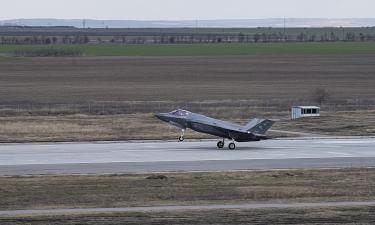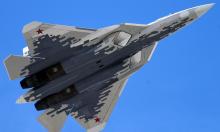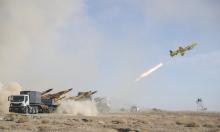What Is Non-Proliferation Regime Contingent On?
The second Moscow Conference on the Non-proliferation of Weapons of Mass Destruction (WMD) took place on September 19-20. The conference was organised by two non-government organisations, the Moscow Carnegie Centre and PIR-Centre for Political Studies, and involved some 300 leading experts on non-proliferation and arms control from 36 countries of the world.
The non-proliferation regime has been subjected to increasing criticism lately, Andrew Cuchins, Director of the Carnegie Moscow Centre, said in his opening remarks. Meetings like this are, therefore, a perfect opportunity for representatives of the global community to exchange ideas and to try to find new solutions to the problems facing humanity.
The two-day conference discussed such problems as the terrorist threat and the possible use of nuclear, chemical and biological weapons by terrorists, the arms race and co-operation in outer space. Issues related to the future of the Treaty on the Non-proliferation of Nuclear Weapons (NPT) topped the conference agenda.
The next NPT review conference is due to take place in 2005. The wisdom of the NPT's further implementation has been questioned lately, above all, in the wake of North Korea's withdrawal from the Treaty. Moreover, Iran is still refusing to sign safeguard agreements designed to make the NPT-stipulated monitoring arrangements more effective.
The fact that India, Pakistan and Israel, de-facto nuclear powers, have not signed the Treaty causes serious concern among members of the global community. It should be recalled that the three countries can only join the NPT after destroying their nuclear arsenals. There are five "legitimate" nuclear powers as stipulated in the NPT - the USA, Russia, Great Britain, France and China - Dr Mohammed Ibrahim Shaker, Chairman of the Egyptian Council for Foreign Affairs, said in his speech to the Moscow conference. This provision of the Treaty must not be amended for India, Pakistan and Israel, as this may set a precedent for other countries. India and Pakistan do not seem to have any intention of scrapping their nuclear weapons, while Israel has not even admitted its nuclear status.
The conferees suggested establishing nuclear-free zones on the basis of regional treaties, both in South Asia and the Middle East, as a possible solution to the problem. However, this calls for a comprehensive settlement to all the problems facing this or that region without focusing solely on the non-proliferation problem.
Dr Shaker recalled that the project to set up nuclear free zones in the Middle East had been drawn up a long time ago. However, Iran's and Israel's involvement in the project is crucial for its implementation. Until peace has been brought to the Middle East, Arab countries will hardly sit down at the negotiating table with Iran and Israel, added Dr Shaker.
Yet, representatives of Iran, Egypt and Israel did meet at the negotiating table in Moscow, although they failed to reach any consensus whatsoever.
When addressing a plenary meeting devoted to WMD in the Middle East, Ali Soltani, Deputy Director General for Political and International Affairs at the IranianForeign Ministry, assured delegates that Iran's nuclear programme was being developed for purely peaceful purposes, and the country did not plan to pull out of the NPT. He also accused Israel of building up its nuclear potential, thereby leading to an imbalance of forces in the region.
Yair Evron, Ph.D, a professor at Tel Aviv University, for his part, said Israel had never resorted to its nuclear arsenal as a means of political pressure. Even in most dramatic periods of history, like the war in 1973, Israel's top brass did not even hint that the country had nuclear weapons, something that could have changed the balance of forces in the region. Moreover, the US will not allow Israel to recklessly use nuclear arms or even refer to them, according to the professor.
The fact that Israel possesses nuclear weapons has no influence whatsoever on regional developments and on the Arab-Israeli settlement effort, added Dr Evron.
Unlike Israel, Iran is seeking to build up its nuclear arsenals, according to the professor. He said it is not ruled out that Iran may use WMD as a tool of political pressure. If Iran is successful in developing nuclear weapons, other Arab countries, Saudi Arabia for example, will try to do the same, triggering an arms race in the region, said the Israeli professor.
When Dr Fawzi Hammad, the former chief of Egypt's Atomic Energy Authority, addressed the plenary meeting, he said that an arms race could not be allowed to happen. The international community understands Israel's security concerns only too well, he said. However, it is many of Israeli actions that prompt Iran, and previously Iraq, to seek possession of nuclear weapons, noted Dr Hammad.
Dr Hammad called on the Middle Eastern countries to break the vicious circle of armed conflicts, which are so destructive to the regional economies and which foster the spread of terrorism.
Dr Hammad set out the principles of establishing a WMD-free zone in the Middle East. Egypt and Iran came up with the idea to create a zone at the UN General Assembly in 1974, while a treaty establishing a WMD-free zone in North Africa was signed in 1996, he recalled. Dr Fawzi Hammad motioned that the Arms Control and Regional Security Working Group, which was set up at the Middle East Peace Conference in Madrid in 1991, should resume operation. However, Dr Hammad and his colleagues then acknowledged that that was impossible until peace guarantees had been ensured in the region.
The international community cannot thus far break the vicious circle. Trying to ensure national security, countries seek to possess weapons of mass destruction. On the other hand, peace and security are unachievable until all countries stop seeking or eliminate nuclear weapons. This is the case with the Middle East, the Korean peninsula and South Asia.
Yet, the global community's non-proliferation efforts are not completely ineffective. If not for the Nuclear Non-proliferation Treaty, far more countries would have deployed nuclear weapons by now, stated the participants in the Moscow conference.
Marianna Belenkaya, RIAN
Subscribe to Pravda.Ru Telegram channel, Facebook, RSS!



